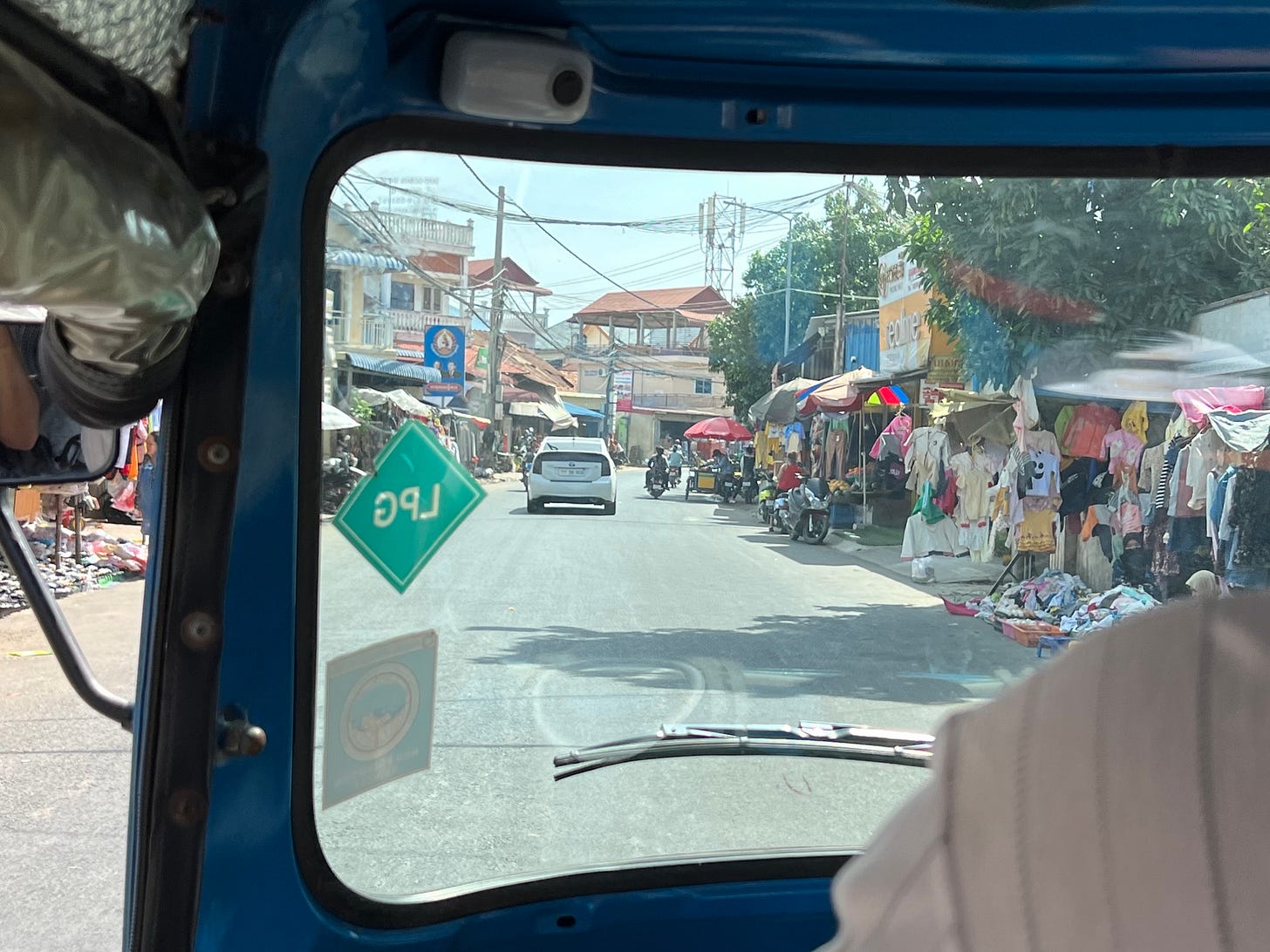Visiting the Killing Fields
How long can we really remember atrocity?
Visiting the Killing Fields
First, the bombs. American.
Those who survived rode back
as saviors, death in their eyes.
Three out of eight. Three
million: Those with soft hands,
who wore glasses, said psalms;
who lived in cities, who sheltered
in the city because they fled
the bombs. Those with a degree.
Pol Pot was a teacher who taught
To keep you is no gain, to lose you is no loss.
Three out of eight, three hundred per day,
DDT dumped on bodies too resilient
to quit. Pol Pot taught
Better to kill an innocent by mistake
than to spare an enemy by mistake.
Loudspeakers hung from Bodhi trees
blared music during the killing, a diesel
generator offered harmony.
Pol Pot taught To dig up the grass
one must remove the roots.
Hoe, digging spade, palm knife,
bamboo trunk, axe, knife. Blindfold,
rope made of hammock string, baby clothes.
No gain to keep them, they might take revenge.
Blood and bone chipped into a tree.
A few got to stay the night, see the stars
one last time, make their pleas
to the ears of ghosts. Their skulls
now rest in the light. Ghosts
maybe drive the tuktuk I took
back into the city, thinking atrocity
is a reminder of who we are,
what we can be. Maybe some lessons
are worth forgetting. That evening
I joined an Aussie and Dutch at mini golf.
A hole-in-one meant our name went up
on a board. When Kerryn’s putt
unexpectedly dropped we cheered,
we whooped it up as if history
would have something to say about it.
But really, we were happy for the free
beer, and that it’d be known we were
here, in Phnom Penh, December 24;
Kerryn, Anthony, Anne.

